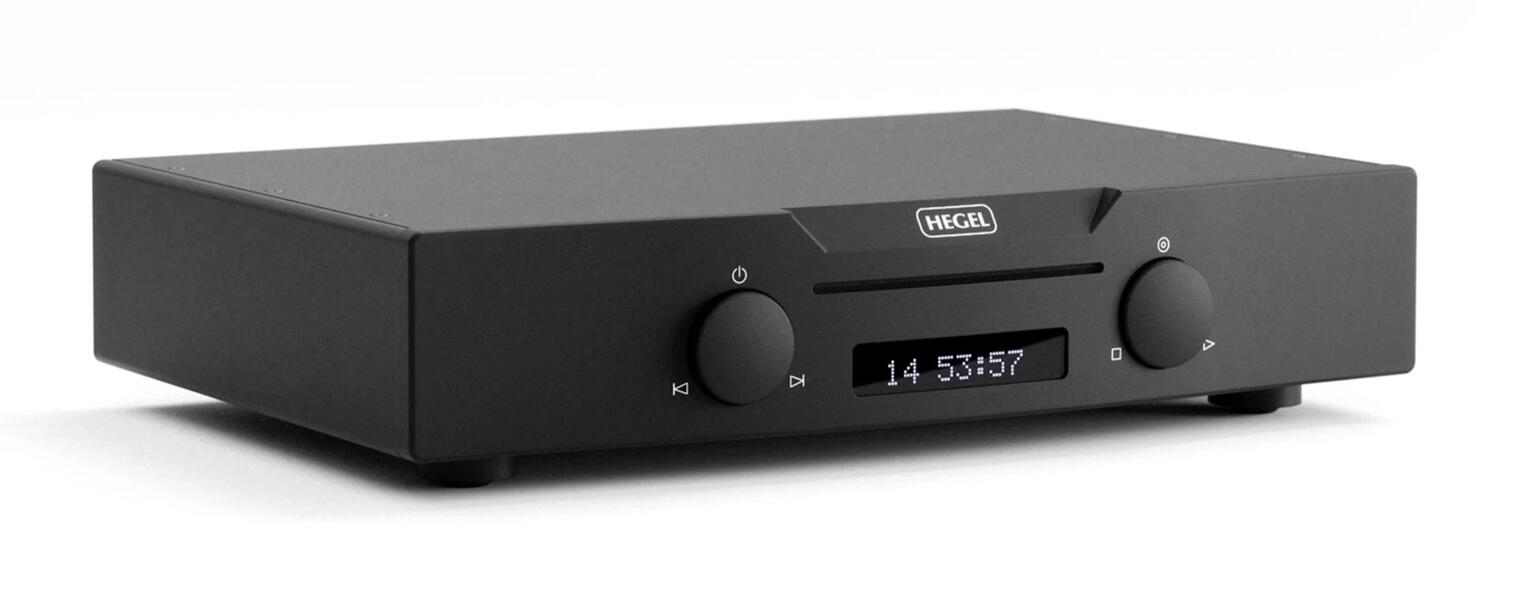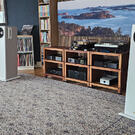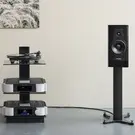Hegel celebrated its 25th anniversary in 2022 and that means that designer and owner Bent Holter has been hunched over screwing, soldering and probably also cursing since he launched Hegel 25 years ago, after completing his studies at NTNU and writing his master’s thesis on the design of transistors for use in amplifiers. Holter rejected all established circuit solutions and threw himself into a project that resulted in what we today refer to as SoundEngine Technology. But where did the name Hegel come from? Bent is also an accomplished guitarist and played (and still does play) in a rock band called The Hegel Band. Perhaps the German philosopher Georg Wilhelm Friedrich Hegel originally also had something to do with it. Who knows?
A changing world
The world has undergone significant change since Mohikan was created. We have lived through a pandemic, a transport crisis and the subsequent shortage of components and, of course, there’s also the matter of the inherent curiosity and ability to think outside the box that comes into play for all designers. We thought that Hegel had enough to do with the launch of the P30A and H30A amplifier sets, but it seems that there’s more going on in the storeroom at Hegel than what we might imagine. So there will be a new CD player and they are unlikely to stop there. Of course, we could speculate wildly, but our lips are sealed. We always have access to a lot of news, but if you have promised to keep quiet then that is exactly what you need to do. However, there is every reason to get excited.
How Did the AKM Factory Fire in 2019 Affect the Availability of DAC Chips?
In late 2019, a catastrophic fire at an AKM factory caused significant disruptions in the production of Digital-to-Analog Converter (DAC) chips. This event led to a worldwide shortage of these critical components. AKM's DAC chips, particularly models like the 4493SEQ, are widely used in high-end audio equipment, and the fire forced manufacturers to scramble for alternatives or stockpile existing supplies.
Despite these challenges, there’s a silver lining. AKM has since established a new assembly line, which has gradually alleviated the shortage, much to the relief of audio enthusiasts and manufacturers alike. This resurgence in AKM's production capabilities is a promising development for the future of high-quality audio hardware.
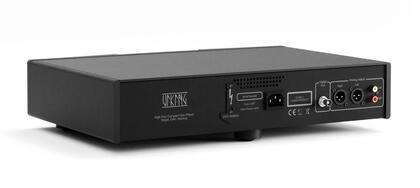
CDs still sound great
In a world dominated by streaming and music that can be purchased and stored on a hard drive, the CD, as a format, has faded into the background. Some blame this on the resurrection of vinyl and turntables, but that’s only part of the real reason.
I’m one of those people who have put most of my CD collection into cardboard boxes that are stored in the basement. It’s nice to have a powerful stereo set in your living room, but it can be hard to also justify making room for several shelf metres of CDs, and I must admit that the majority of the music I have on CD was purchased because I am interested in the music rather than for audiophile enjoyment. In this case you might as well use Tidal or Qobus, or as is the case at Stereo+, both.
However, it's important to note that many audio enthusiasts still cherish their large disc collections and don't have the inclination to rip and stream. The software for playing CDs is often cheaper than high-resolution downloads, making it a cost-effective option. Because I’m quick to forget, every new listening session with CDs played using my CD transport and DAC system becomes a wake-up call and reminder that the CD still has qualities that offer a very strong listening experience.
This quality is echoed by many who find that as long as the CD sounds good, it will continue to enjoy a long and entertaining life. The humble compact disc, with its superior sound quality and tactile experience, still holds a special place in the hearts of many audio enthusiasts. So, while streaming services are convenient and efficient, the CD format isn't disappearing anytime soon.
Dedicated player
You are faced with several choices if you are launching a new CD player. One is how much to add in terms of the equipment that is currently in demand. I imagine it could be tempting to fit it with digital inputs so that Viking can be used as a digital converter/DAC and maybe someone would like to use it as a high-quality streamer.
That said, Hegel Viking has been designed to play Red Book CDs only. That means that the drive unit, electronics, the implementation of and the digital converter itself have been fine-tuned for one thing only and that is to play CDs with a 16 bit/44.1kHz resolution.
How Does the Viking CD Player Achieve Great Timing and Reduce Noise?
Attention to Clock Quality
The Viking CD player excels in timing by meticulously focusing on clock quality. Accurate clocking ensures that digital signals are processed with minimal jitter. This precision timing contributes to a clearer and more refined sound.
Noise Reduction Techniques
Moreover, the player employs advanced noise reduction techniques. By minimizing electronic interference, it effectively reduces the noise floor. This improvement isn't just noticeable to audiophiles; even casual listeners can appreciate the enhanced clarity. The spaces between each musical note become more distinct, allowing for a more immersive listening experience.
Enhanced Listening Experience
The impeccable timing plays a crucial role in enhancing the overall auditory experience. Whether you're engaged in focused listening or enjoying background music, the sound remains captivating and free from unwanted distractions. Many devices struggle with maintaining quality in less-than-ideal listening situations, but the Viking CD player excels, making it difficult to get distracted for the wrong reasons.
Side Effects of Great Timing
Interestingly, superior timing also mitigates less desirable tonal qualities. Recordings that typically sound harsh or coarse are rendered more pleasing as the timing ensures every note is delivered at the optimal moment. This makes even previously unappealing tracks enjoyable.
In summary, through its meticulous attention to clock quality and sophisticated noise reduction, the Viking CD player achieves exceptional timing and a significantly lower noise floor. The result is a highly engaging and distraction-free listening experience, making it a standout choice for all music lovers.
DAC Chipset in the Hegel Viking CD Player
The Hegel Viking CD player incorporates the AKM 4493SEQ DAC chipset. This choice is noteworthy as the AKM's production capabilities were significantly impacted due to a factory fire in late 2019, leading to a global chip shortage. However, recent reports indicate that a new AKM assembly line has commenced operations, ensuring a steady supply of these high-quality chipsets. This development is particularly exciting for audio enthusiasts eager for premium sound quality.
How is the LineDriver Output Stage of the Viking CD Player Designed to Perform?
The LineDriver output stage of the Viking CD player is engineered for superior performance. It boasts an extremely low output impedance, ensuring robust compatibility with a wide range of cables and preamplifiers.
Key Features:
- Low Output Impedance: This design minimizes signal loss and preserves audio integrity over various connections.
- Enhanced Compatibility: Can efficiently drive nearly any type of audio cable or preamplifier without degradation.
By focusing on these critical aspects, the LineDriver output stage maintains high fidelity and seamless connectivity, making it an excellent choice for audiophiles and professionals alike.
The Viking CD player integrates advanced features originally designed for Hegel's streamers. These include the MasterClock technology, which ensures precise timing for audio playback, and the SoundEngine technology, which enhances sound quality by reducing distortion. These innovations mark a significant upgrade from the previous model, the Mohican.
Simple and straightforward
Hegel Viking is simple and straightforward but robustly built. Like several other new models, the cabinet has the small recess at the top of the faceplate, a couple of control buttons to turn it on/off, track selection, play and stop. The centre display is clear and has been chosen because it is very modest.
The display uses OLEDs to keep noise as low as possible. Many components sound better with the display defeated because of the electrical noise that most inject into the circuit, so this is a smart move. This choice ensures that while the Viking CD player remains user-friendly and visually appealing, it also prioritizes sound quality by minimizing interference.
With its combination of intuitive design and thoughtful engineering, the Viking CD player offers a seamless experience for both casual listeners and audiophiles.
The player is available without a CD tray. Some might be sceptical of such a solution, but there is no need to be. The internal drive unit is of high quality and has been designed to play CDs only. Most people will probably choose to use drive units intended for video and audio formats, such as DVD-audio and SACD, but Viking is dedicated to CD playback.
The back may be even more sparse than the front. You will find a single BNC digital output and a couple of phono/RCA analogue outputs, as well as, of course, a balanced XLR.
The inside is equipped with a bit-perfect digital converter and Hegel’s SoundEngine.
The Benefits of the Discrete MasterClock in the Viking CD Player
Enhanced Audio Clarity
The discrete MasterClock significantly improves audio clarity by reducing jitter, which is a common digital distortion. This ensures that every note and nuance in the music is captured and reproduced as accurately as possible.
Improved Timing Accuracy
A high-quality MasterClock provides impeccable timing precision. With this advanced clock, the Viking CD player can synchronize audio data more accurately, leading to a seamless and error-free playback experience.
Superior Listening Experience
By minimizing jitter, the discrete MasterClock allows for a more enjoyable listening experience. You can expect richer, more natural soundscapes, free from the harshness and artifacts that can plague lesser CD players.
Enhanced Equipment Compatibility
The discrete MasterClock's precision also boosts compatibility with other high-end audio equipment. This means it’s easier to integrate the Viking CD player into your existing sound system without losing audio quality.
Reliability and Longevity
Using a state-of-the-art MasterClock extends the life and reliability of the Viking CD player. The reduced digital errors contribute to less wear and tear over time, making your investment in high-quality audio last longer.
Key Benefits Recap
- Reduced Jitter: Ensures high-quality, distortion-free audio.
- Improved Timing: Better synchronization of audio data.
- Listening Experience: Richer and more natural sound.
- Compatibility: Easily integrates with high-end audio systems.
- Longevity: Enhanced durability and lifespan.
The discrete MasterClock in the Viking CD player offers a host of benefits, elevating your audio experience to new heights.
The Hegel Viking CD player has a weight of 7.3 kilograms. Its dimensions are 99 millimeters in height, 430 millimeters in width, and 305 millimeters in depth, making it a compact yet robust addition to your audio setup.
The Hegel Viking CD player does not upsample audio. Unlike many modern disc players that offer various upsampling options, the Viking stays true to the original 16-bit, 44.1kHz red book CD standard. This focused approach caters to purists who appreciate unaltered audio quality.
The Benefits of the Discrete MasterClock in the Viking CD Player
Enhanced Audio Clarity
The discrete MasterClock significantly improves audio clarity by reducing jitter, which is a common digital distortion. This ensures that every note and nuance in the music is captured and reproduced as accurately as possible.
Improved Timing Accuracy
A high-quality MasterClock provides impeccable timing precision. With this advanced clock, the Viking CD player can synchronize audio data more accurately, leading to a seamless and error-free playback experience.
Superior Listening Experience
By minimizing jitter, the discrete MasterClock allows for a more enjoyable listening experience. You can expect richer, more natural soundscapes, free from the harshness and artifacts that can plague lesser CD players.
Enhanced Equipment Compatibility
The discrete MasterClock's precision also boosts compatibility with other high-end audio equipment. This means it’s easier to integrate the Viking CD player into your existing sound system without losing audio quality.
Reliability and Longevity
Using a state-of-the-art MasterClock extends the life and reliability of the Viking CD player. The reduced digital errors contribute to less wear and tear over time, making your investment in high-quality audio last longer.
Key Benefits Recap
- Reduced Jitter: Ensures high-quality, distortion-free audio.
- Improved Timing: Better synchronization of audio data.
- Listening Experience: Richer and more natural sound.
- Compatibility: Easily integrates with high-end audio systems.
- Longevity: Enhanced durability and lifespan.
The discrete MasterClock in the Viking CD player offers a host of benefits, elevating your audio experience to new heights.
How the Viking CD Player Encourages Full Album Listening
The Viking CD player is designed to enhance your music experience by encouraging you to listen to entire albums, rather than just individual tracks. Here are a few reasons how it achieves this:
- Seamless Experience: The Viking's seamless playback technology creates a smooth transition between tracks, making it tempting to keep listening without interruptions.
- Auditory Excellence: By focusing on high-fidelity sound quality, this CD player provides an immersive auditory experience that makes you want to savor every song in the context of the whole album.
- Nostalgic Feel: Like vinyl records, the Viking optimizes for complete album playback. The experience is curated to mimic that nostalgic feeling, urging you to enjoy the artwork as a cohesive piece.
- User-Friendly Interface: With intuitive controls and an easy-to-navigate menu, selecting and playing a full album is straightforward, reducing the effort it takes to move from song to song.
- Dedicated Album Modes: The device may include specific settings or modes for album playback, making it easier to enjoy the music as the artist intended.
With these features, the Viking CD player transforms listening from a random, track-skipping endeavor to a more engaged and enriching experience. Whether it’s the seamless transitions, high-quality sound, nostalgic design, user-friendly interface, or dedicated album modes, this CD player makes it effortless to indulge in full albums.
Features of the Viking CD Player Remote Control
The remote control for the Viking CD player is designed for simplicity and functionality. Here’s what it offers:
- Metal Construction: Crafted from high-quality metal, the remote control exudes durability and a premium feel.
- Multifunction Buttons: Although the remote includes several buttons, only a few are necessary for the Viking CD player.
- Dual-Purpose Button: One button serves a dual role: a single press stops playback, while a double-click ejects the disc.
- Minimalist Design: True to Scandinavian minimalism, the remote omits redundant features like direct track selection and repeat options, focusing instead on essential functions.
Overall, this remote control seamlessly combines elegance and practicality, ensuring an intuitive user experience.
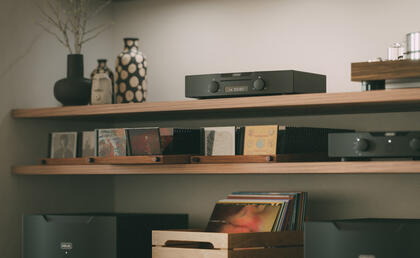
Tested using multiple systems
The player has primarily been run on my own set. That is with a Hegel H590 and a couple of Kerr Acoustics H320. Not because the set is in the top high-end class but because I know it inside out. The player has also been tested in combination with Hegel P30A/H30A and a couple of Focal Kanta 3. The experiences were different to say the least, with H320 providing typical monitor precision, while Kanta 3 pulls much more on the bass and provides more energy in midrange and treble, but thankfully without being sharp.
However, this doesn’t mean that the Hegel Viking’s qualities struggle to break through, in fact they shine as clear as the sun when it breaks through the clouds after a day of rain. At the same time, I find it almost hard to believe how everyone who creates hi-fi systems ends up with such widely differing results when the goal is exactly the same.
We experienced an additional push and dynamics in the bass with both of the systems we used. The sound is not more bold or rich, but it has excellent depth, powerful control, solid dynamics and more nuance than we usually experience. Both pairs of the speakers we used are capable of playing bass down to a range of 20Hz, but we have rarely heard depth like this, despite many audio sources having been connected.
The Impact of the Viking CD Player’s Timing on Tonal Qualities
One remarkable effect of the Viking CD player’s impeccable timing is its ability to minimize harsh and grainy tonal qualities in recordings. When a device achieves perfect timing, even tracks that might otherwise sound coarse or abrasive instead deliver a smoother auditory experience.
Consider this: I recently received a collection of jazz CDs, many of which were old mono recordings. Typically, such recordings could highlight tonal imperfections. However, while playing them on the Viking CD player, these flaws were not accentuated. Instead, the precision in timing allowed the unique artistry and style of each musician to shine through, making it easier to appreciate the essence of their performances.
Key Benefits of Great Timing
- Reduced Harshness: Recordings that often sound shouty and coarse are rendered more enjoyable and refined.
- Enhanced Musicality: The focus shifts from tonal shortcomings to the actual performance and expression of the artists.
- Appreciation of Older Recordings: Even older, mono recordings retain their charm without exposing their limitations.
Ultimately, the Viking CD player transforms the listening experience by ensuring that timing is spot on, allowing the true character of the music to emerge, free from distracting tonal imperfections.
The Viking CD player excels at handling older mono recordings with remarkable finesse. One of its standout features is its ability to compensate for typically harsh tonal characteristics found in such recordings. When the Viking player gets the timing right, it minimizes the coarse and grainy sound that older recordings often exhibit.
Capturing the Essence of Vintage Music
I recently tested a box of vintage CDs on the Viking. While not all of them were my favorites, the player made it easy to appreciate each artist's intent and the essence of their performance. The player’s precise timing brought out the spirit of the music, allowing the playing and style to shine through despite the recordings' age.
Highlighting Musical Nuances
Even with the limitations of old mono recordings, the Viking shifts the focus away from any tonal flaws. Instead, it highlights the nuances of the performance, making the innate musical qualities stand out. This ensures that the listener can enjoy the artistry without being distracted by the technical shortcomings of the older media.
Key Benefits:
- Enhances listening experience by minimizing harsh tones
- Focuses on musical essence rather than technical flaws
- Preserves the integrity of the original performance
In short, the Viking CD player isn't just a medium for playback; it's a tool that breathes new life into vintage recordings, making them more enjoyable and true to the original spirit.
When it comes to sound quality, the Viking CD player strikes a remarkable balance between the characteristics often found in Japanese and Western audio equipment. Japanese CD players are renowned for their ultra-refined, smooth, and creamy sound, coupled with exceptional build quality. On the other hand, Western models—both European and American—are typically celebrated for their lively and exciting audio profiles, which may sacrifice some mechanical finesse but deliver an adrenaline-pumping experience.
The Viking CD player harmoniously blends these two worlds. It offers the smooth, polished audio performance typical of high-end Japanese models, ensuring a calm and refined listening experience when the music demands it. Simultaneously, it brings the dynamic excitement and vibrancy that Western players are known for, igniting a sense of thrill during more energetic passages.
This versatility is further enhanced by the Viking’s impeccable timing, a feature that even some of the best turntables would envy. Whether playing a serene symphony or a fiery rock anthem, the Viking CD player consistently delivers high-fidelity sound that encapsulates the best of both Japanese and Western design philosophies.
CD vs streaming
It’s never easy to tell whether we are listening to different versions of the studio master, but, for all the tracks we played, it was close to 20-0 in favour of Hegel Viking. OK, let’s say 18-2 just to be kind, but that still represents what could be described as a crushing defeat for streaming. Of course, we can speculate about the reasons, but what is certain is that the Hegel CD player plays music at a quality that definitely stands out from the two DACs (iFI Audio iDSD Pro and the new Ferrum Wandla) and the streams we tested, which, together, add up to at least the same price as Viking. Is the challenge the quality of the signal received from the streaming servers or is it because the digital converters try to be “all things to all men”? I don’t know, but high-resolution files, good digital converters and streamers did not have the same precision and openness in the midrange and treble or the incredibly beautiful holography and the same depth perception in the bass. The strange thing was that I could hear what was playing even if I walked halfway down the stairs and stood there to listen.
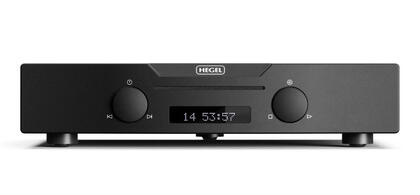
Music on CD
Armed with a handful of CDs and with rain drumming on the roof so that heading to the beach for a swim is not an option now that the world has finally started their summer holidays, I am ready for one of the most exciting tests of the summer.
I start with Terje Rypdal’s Last Nite. It goes straight to Terje Rypdal’s guitar and it’s rare to hear the sound so directly while also being so floaty and airy. Ethereal guitar tones, echoes and suitably soaring synths provide a fantastic soundscape. I decide to continue with more Rypdal and As If The Ghost .... Was Me? Fortunately, he has kept the essentials but replaced the drum machine with a real drummer and it sounds masterful. The guitar is relentlessly focused, the zing in the projections of the ride cymbals are magnificent and the soundscape is huge, with well-defined instrument placement.
I move onto Opeth and Hessian Peel from the album Watershed. Not because it usually sounds great but because all too often it does not. The sound tends to get a bit stuffy and woolly and the different instruments often end up getting in each other’s way. However, the Hegel player does an impressive clean-up operation here and firmly nails each of the instruments against the pitch-black background, retrieving a wealth of information for the ears to feast on without doing anything overt or threatening for that matter. As the track progresses, it becomes powerful and heavy with an unusually strong bass foundation, but the soundscape still maintains the impressive size and the same clarity and openness I experienced during my initial rounds with the player.
The somewhat drowsy Over En By by Kari Bremnes is muted, but served with a wealth of nuance and incredible articulation. Even though I have almost played this record to death, it still provides an unusually fresh and almost new experience. The voice is simply beautifully rendered and feels incredibly close. The articulation, the tone and the restrained s’s, other difficult consonants and phrasings are masterfully rendered and, even though there is a lot of fine-tuning of the musicians in the background, every little stroke and every touch of the brushes against the drum skins is unusually clear. At the same time, the rather dusty trumpet tone from Arve Henriksen is incredibly rich in air, resonance and timbres. All in all, the melody is much too short. When you get into it, close your eyes and make yourself comfortable, you want it to last for at least half an hour because the sound experience really is fantastic.
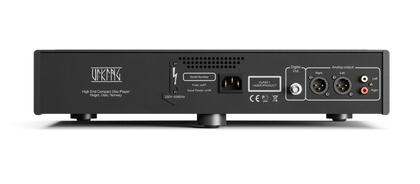
Conclusion
It is of course dangerous to make predictions, but it’s very hard to imagine that a CD player in this price range could get much better without significant innovations. Hegel Viking processes the audio from a CD in an incredibly impressive manner, which is both surprising and gratifying. The sound is very good regardless of what you compare it to under 100K and it makes you think carefully about whether it was such a good idea to put your CDs in the basement. It may seem as though a few decades of developing CD playback devices has yet to fully unlock the potential of the once-popular silver discs. Perhaps they too will experience a renaissance?
Technical Specifications of the Hegel Viking CD Player
Product Type
- Type: Solid-state compact disc player
Disc Compatibility
Disc Types Supported: Standard Red Book CD
Inputs & Outputs
- Digital Inputs: None available
- Analogue Outputs:
- Two stereo analogue audio outputs
- One set balanced via XLR connectors
- One set single-ended via RCA jacks
- Two stereo analogue audio outputs
- Digital Outputs:
- One coaxial output via BNC connector
Audio Performance
- Frequency Response: 0Hz to 22kHz
- Distortion: Less than 0.0015%
Additional Specifications
- Digital to Analogue Converter (DAC) Resolution: Not applicable
- Signal to Noise Ratio: Not specified
Physical Characteristics
- Dimensions (H×W×D): 99mm x 430mm x 305mm
- Weight: 7.3 kg
International Pricing
- Price: £4,500 or $5,000

 Vipps oss en gave: 129702
Vipps oss en gave: 129702